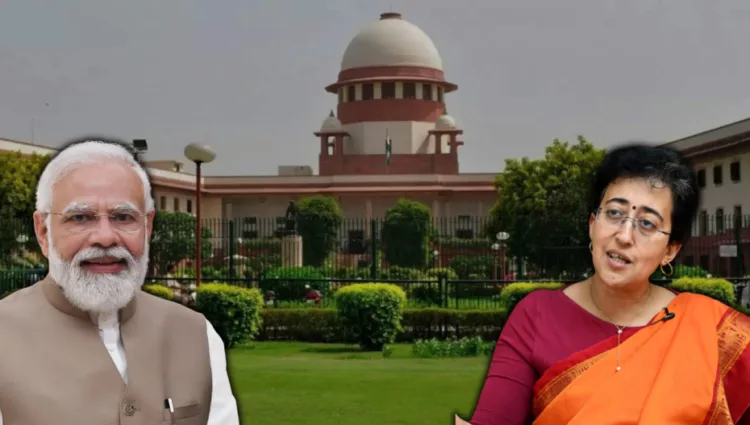On January 17, the Supreme Court temporarily stayed the Delhi High Court’s directive that required the Delhi government to sign a Memorandum of Understanding (MoU) with the Central government by January 5 for implementing the PM-Ayushman Bharat Health Infrastructure Mission (PM-ABHIM).
A bench comprising Justices B. R. Gavai and A. G. Masih issued the stay while hearing the Delhi government’s appeal against the High Court’s ruling, which stemmed from a suo motu Public Interest Litigation (PIL) initiated in 2017. The court also sought the Centre’s response to the matter.
Senior Advocate Dr. Abhishek Manu Singhvi, representing the Aam Aadmi Party (AAP)-led Delhi government, argued that the Centre’s jurisdiction is limited to topics under Entries 1, 2, and 18 of the State List—namely public order, police, and land. He contended that the High Court’s directive had effectively redefined governmental powers concerning the health sector, encroaching upon the Delhi government’s jurisdiction.
Dr. Singhvi further argued that the directive to sign the MoU constituted undue pressure on the Delhi government to adopt a policy decision. Under the proposed MoU, 60 per cent of the capital expenditure for implementing the PM-ABHIM scheme would be borne by the Central government, with the Delhi government contributing the remaining 40 per cent. However, no provisions were made for operational expenditures, he noted.
The senior counsel also highlighted that the Delhi government’s existing health initiatives offered broader coverage than the PM-ABHIM scheme. He emphasized that any agreement under the current conditions would undermine the state’s autonomy in addressing healthcare infrastructure.
The High Court had earlier criticised the Delhi government for its failure to implement the PM-ABHIM scheme, noting that 33 other states and Union Territories had adopted the initiative. It deemed this lapse indefensible, given the importance of ICU beds and ventilator facilities in public hospitals.
The court emphasised that Delhi’s residents could lose access to crucial funds and healthcare amenities if the scheme was not executed. It also clarified that the MoU’s signing should not be delayed by the enforcement of any Model Code of Conduct, as the scheme’s purpose was to benefit the public.
The High Court had expressed serious concerns over the inadequacy of medical infrastructure in Delhi to treat critically ill patients. It questioned the government on why existing facilities were failing to meet the city’s demand and urged the administration to consider implementing the PM-ABHIM scheme on a pilot basis before expanding it across all public hospitals.
After hearing Dr. Singhvi’s submissions, the Supreme Court issued a notice regarding the petition and stayed the High Court’s directive. The case, which underscores the balance between state and central authority in healthcare policy, remains under judicial review.
The outcome of this case could set a precedent for state-centre relations concerning policy implementation, particularly in areas like healthcare infrastructure.



















Comments